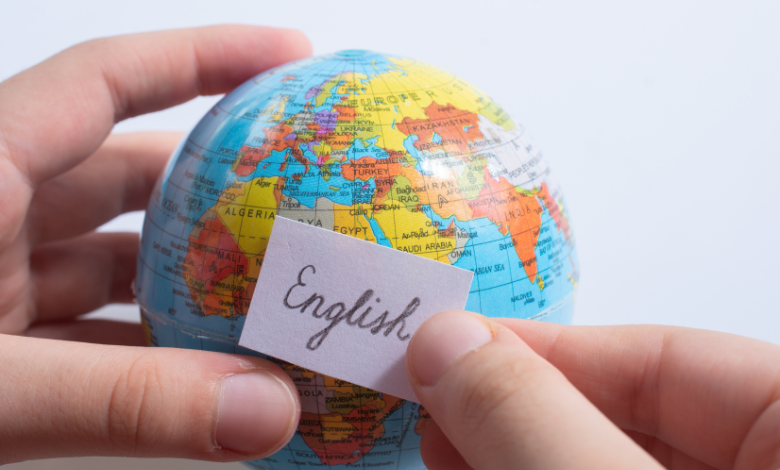Fanyi: Bridging Language Gaps in a Globalized World

Ever wondered how you can effortlessly communicate with someone who speaks a different language? Welcome to the world of Fanyi. Fanyi, which means “translation” in Chinese, refers to the process of converting text or speech from one language to another. In today’s interconnected world, translation services have become essential. They enable us to break down language barriers and foster better understanding across cultures.
The Evolution of Fanyi
Early History of Translation
Translation is as old as language itself. Ancient civilizations relied on translators to bridge linguistic divides for trade, diplomacy, and cultural exchange. The Rosetta Stone, for instance, is a testament to the significance of translation in ancient times.
Modern Translation Technologies
Fast forward to the digital age, and we have witnessed a remarkable transformation in translation services. From human translators laboring over texts to sophisticated software that can translate entire documents in seconds, the evolution of Fanyi is nothing short of revolutionary.
How Fanyi Works
Basic Principles of Translation
At its core, translation is about understanding the meaning of a source text and accurately conveying it in a target language. This involves not just word-for-word translation but also capturing the nuances, context, and cultural references.
Role of Artificial Intelligence in Translation
Artificial Intelligence (AI) has revolutionized Fanyi. AI-driven tools can process vast amounts of data, learning from countless examples to produce more accurate translations. Machine learning algorithms continuously improve as they are exposed to more data, making AI-powered translators increasingly reliable.
Benefits of Using Fanyi
Enhancing Communication
One of the most significant benefits of Fanyi is its ability to enhance communication. Whether you’re traveling, studying abroad, or conducting international business, translation services ensure that language is no longer a barrier.
Bridging Cultural Gaps
Fanyi goes beyond mere words. It helps bridge cultural gaps by providing insights into different customs, traditions, and ways of thinking. This fosters mutual respect and understanding among diverse groups.
Improving Business Opportunities
In the business world, Fanyi is a game-changer. It allows companies to expand their reach, enter new markets, and engage with customers in their native languages. This not only boosts sales but also builds trust and credibility.
Types of Fanyi Services
Machine Translation
Machine translation uses algorithms to automatically convert text from one language to another. While it may not always capture the subtleties of human language, it’s incredibly fast and useful for getting the gist of a text.
Human Translation
Human translators bring a depth of understanding and cultural sensitivity that machines often lack. They can handle complex texts, idiomatic expressions, and context-specific nuances with precision.
Hybrid Translation
Hybrid translation combines the speed of machine translation with the accuracy of human translators. Machines handle the initial translation, which is then refined and polished by human experts. This approach offers the best of both worlds.
Popular Fanyi Tools
Google Translate
Google Translate is one of the most widely used translation tools. It supports over 100 languages and offers features like real-time translation, image translation, and voice translation.
Microsoft Translator
Microsoft Translator is another powerful tool that offers text, speech, and image translation. It integrates seamlessly with Microsoft Office, making it a favorite among business users.
DeepL
DeepL is known for its superior translation quality, especially for European languages. It uses advanced neural network technology to provide more natural and accurate translations.
Choosing the Right Fanyi Service
Factors to Consider
When choosing a translation service, consider factors like accuracy, speed, ease of use, and the languages supported. Your specific needs—whether for casual use or professional purposes—will also influence your choice.
Comparing Different Services
It’s helpful to compare different Fanyi services based on user reviews, features, and pricing. Try out a few options to see which one best meets your requirements.
Challenges in Fanyi
Accuracy Issues
While translation tools have come a long way, they are not perfect. Accuracy can still be an issue, especially with idiomatic expressions and complex texts.
Context and Nuance
Capturing the context and nuance of a text is challenging. Human translators excel in this area, but even they can struggle with highly contextual or culturally specific content.
Language Variations
Languages are not static; they evolve over time. Regional dialects, slang, and new terms constantly emerge, making it difficult for translation tools to keep up.
Fanyi in Different Sectors
Fanyi in Education
In education, Fanyi tools are invaluable. They help students access resources in different languages, collaborate with peers globally, and learn new languages more effectively.
Fanyi in Business
For businesses, Fanyi opens up new opportunities. It enables companies to communicate with international clients, translate marketing materials, and operate in multiple languages.
Fanyi in Travel and Tourism
Travelers benefit immensely from Fanyi. Translation apps can translate signs, menus, and conversations in real-time, making travel in foreign countries much more accessible.
The Future of Fanyi
Advances in AI and Machine Learning
The future of Fanyi looks promising, with continuous advancements in AI and machine learning. These technologies will make translations more accurate, natural, and context-aware.
Potential for Real-Time Translation
Imagine speaking into a device and having your words instantly translated into another language. Real-time translation is on the horizon, promising to make cross-language communication seamless.
How to Improve Your Translation Skills
Learning Multiple Languages
To become a proficient translator, learning multiple languages is essential. This not only enhances your translation skills but also deepens your understanding of different cultures.
Using Translation Tools Effectively
Leverage translation tools to assist with your work. Understand their strengths and limitations to use them more effectively.
Practicing Regularly
Like any skill, regular practice is key to improvement. Translate texts, watch foreign films, and engage with native speakers to hone your abilities.
Case Studies of Successful Fanyi Use
Businesses Benefiting from Fanyi
Many businesses have successfully used Fanyi to expand globally. For instance, e-commerce companies translate their websites and product descriptions to cater to international customers, resulting in increased sales.
Educational Institutions Using Fanyi
Educational institutions use Fanyi to provide multilingual support to students, translate academic papers, and facilitate international collaborations.
Fanyi and Globalization
Role in Global Business
Fanyi plays a crucial role in global business by enabling companies to operate across borders, communicate with international partners, and understand global markets.
Impact on Cultural Exchange
By breaking down language barriers, Fanyi promotes cultural exchange. It allows people to share their stories, traditions, and perspectives with a global audience.
Ethical Considerations in Fanyi
Ensuring Accuracy and Fairness
It’s important to ensure that translations are accurate and fair. Misinterpretations can lead to misunderstandings and perpetuate stereotypes.
Respecting Cultural Sensitivities
Translators must be mindful of cultural sensitivities. This includes understanding cultural norms, avoiding offensive language, and ensuring respectful representation.
Conclusion
In a world that is more connected than ever, Fanyi is an indispensable tool. It enhances communication, bridges cultural gaps, and opens up new opportunities. As technology continues to advance, the future of translation looks brighter, promising even more accurate and seamless communication across languages.
FAQs
What is Fanyi?
Fanyi is the process of translating text or speech from one language to another, enabling communication across language barriers.
How accurate are machine translation tools?
While machine translation tools have improved significantly, they are not always 100% accurate, especially with complex texts and idiomatic expressions.
Can Fanyi replace human translators?
While Fanyi tools are incredibly useful, they cannot completely replace human translators, especially for nuanced and context-specific translations.
What are the best tools for translation?
Some of the best translation tools include Google Translate, Microsoft Translator, and DeepL, each offering unique features and strengths.
How can I improve my translation skills?
To improve your translation skills, learn multiple languages, use translation tools effectively, and practice regularly by engaging with native speakers and translating various texts.



